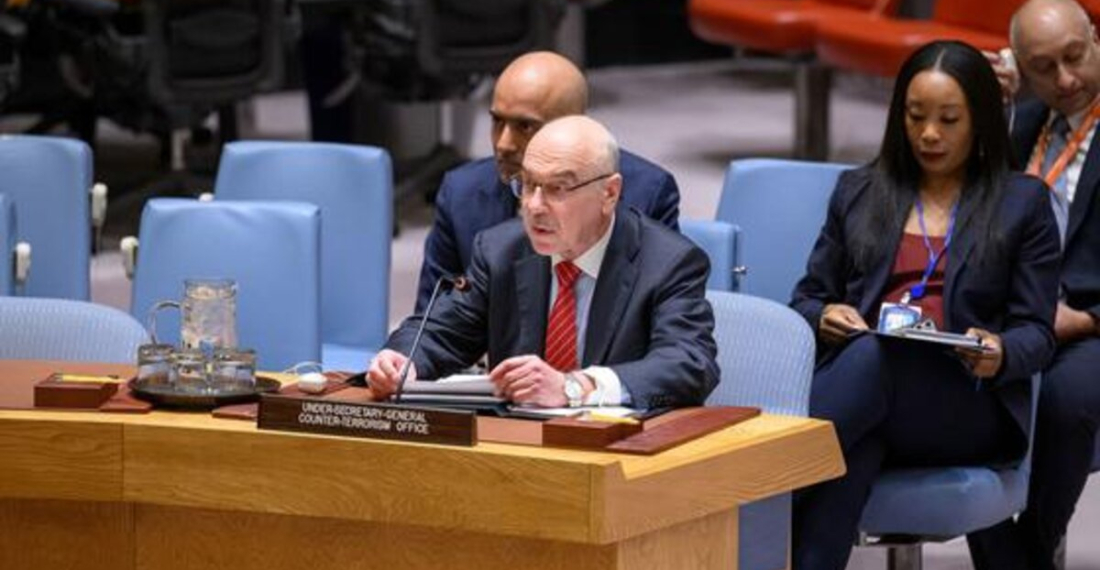On Wednesday (20 August) the Security Council convened for a briefing on the Secretary-General’s 21st biannual strategic-level report analysing the threat posed by the Islamic State in Iraq and the Levant (ISIL/Da’esh). Under-Secretary-General and UN Counter-Terrorism Chief Vladimir Voronkov cautioned that ISIL/Daesh remains a resilient and evolving global threat, with its presence expanding across multiple regions.
Voronkov emphasised that ISIL/Da’esh has not disappeared and continues to operate despite enduring territorial losses. Its affiliates remain active in Africa and the Middle East, with control or influence in parts of Syria and in multiple Sahel countries. Its allies, the Islamic State West Africa Province (ISWAP) and Islamic State in the Greater Sahara (ISGS) remain particularly strong as weak governance enables extremist presence and recruitment. In addition, ISIL-Khorasan (ISIL-K) continues to pose serious challenges in Afganistan and Central Asia. Under the leadership of Sanaullah Ghafari, ISIL-K has prioritised attacks against Shia communities and the Taliban while seeking recruitment in Central Asa and the North Caucasus.
Voronkov further highlighted ISIL/Da’esh’s use of new technology, including encrypted platforms, crowdfunding and artificial intelligence arguing that “Member States’ reports that ISIL/Da’esh may be seeking to recruit experts in cybersecurity are gravely concerning”. Addressing the group’s digital adaptation will remain a priority for counter-terrorism efforts.
The briefing also outlined strategic priorities to counter ISIL/Da’esh. This includes strengthening regional counter-terrorism cooperation, enhancing sanctions enforcement, and improving intelligence sharing among Security Council member states. The briefing also evaluated how effectively member states have implemented the UN’s evolving global counter-terrorism strategy.






